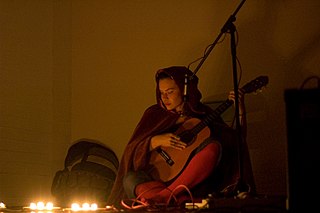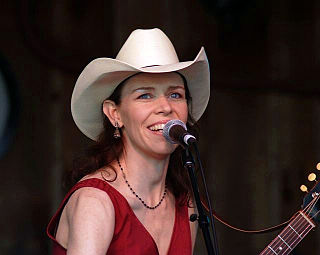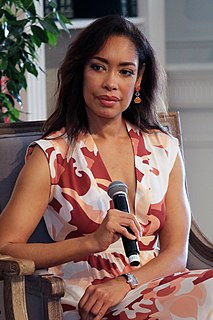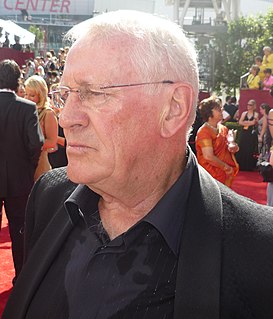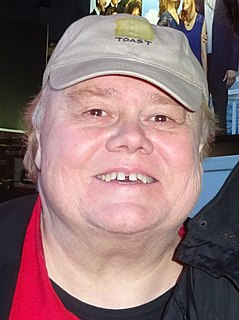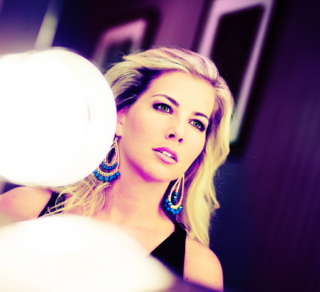A Quote by Larkin Grimm
I've always been curious about people's psychedelic experiences, and I kind of had this assumption that I was going to have some kind of crazy mindblowing psychedelia thing happening, but actually, it was very quiet, and I didn't have any hallucinations at all. Nothing changed, except that suddenly I could hear the voice of my conscience, which I didn't ever think of as being a real voice. And ever since having that experience, I've had that voice in my head and followed it occasionally.
Quote Topics
About
Actually
Always
Any
Assumption
Been
Being
Changed
Conscience
Could
Crazy
Curious
Ever
Except
Experience
Experiences
Followed
Going
Had
Hallucinations
Happening
Having
Head
Hear
Kind
Nothing
Occasionally
People
Psychedelic
Psychedelic Experience
Quiet
Real
Since
Some
Suddenly
Thing
Think
Very
Voice
Which
Related Quotes
Ever since I was first read to, then started reading to myself, there has never been a line read that I didn't hear. As my eyes followed the sentence, a voice was saying it silently to me. It isn't my mother's voice, or the voice of any person I can identify, certainly not my own. It is human, but inward, and it is inwardly that I listen to it. It is to me the voice of the story or the poem itself.
I think most of us, as writers, have had experiences where you get edited and it doesn't feel like your voice at all. And so it's been nice to go through the experience of having a lot wind up on the cutting-room floor, and yet still feel that your voice is being - not purified, but made more yourself. I think that's a very rare thing.
What is the psychedelic experience? What promise does it hold for a sane future for our planet and our children? And what is it about it that kindles the kind of loyalty that I feel coming from the people in this room this evening? And I submit to you that it is nothing less than the rebirth of a voice that has been silent for at least a thousand years, the still small voice of the Logos of the planet.
Geoffrey's personal style was very different from mine. He has a lovely speaking voice, a quiet speaking voice. But at Cabinet we always reported on foreign affairs - we always had this quiet voice. It was so quiet sometimes I had to say 'speak up'. And he gave it in a way which wasn't exactly scintillating. And you know, foreign affairs are interesting. They affect everything that happened to our own way of life, and they are exciting. And so we just diverged.
It’s wonderful, it’s expressive. It’s a way of using a part of my instrument that I’m comfortable and familiar with. The voice is such a vital part of crafting a character. I’m so pleased that I have the kind of voice that prints well and that people want to hear. I’ve had friends actually say, ‘You know, I was in the kitchen, and the television was on and I heard you.’ I love hearing that there’s something familiar about my sound, and that to some people it’s soothing.
But what I would like to say is that the spiritual life is a life in which you gradually learn to listen to a voice that says something else, that says, "You are the beloved and on you my favour rests."... I want you to hear that voice. It is not a very loud voice because it is an intimate voice. It comes from a very deep place. It is soft and gentle. I want you to gradually hear that voice. We both have to hear that voice and to claim for ourselves that that voice speaks the truth, our truth. It tells us who we are.
I would very honestly just tell you that what I tried to do was simply respond to inquiries from people as they came in. Where I've thought I could say something useful, I've tried to add a voice that was, frankly, a dissident voice earlier on, but one that I think has become a more mainstream voice-and not because I've shifted. I think that the critique I had of what was going on in our financial system from six, eight years ago-after seeing some of what we've suffered through and even since the cataclysm itself-in terms of the structural changes.
Many people are laughing when they see me, but I'm playing Mrs.Baskets all pristine. I'm playing it not-Louie. I'm not being Louie. I'm just being the character that I think it should be. I had to make a decision as to whether I was going to change my voice or not, but we decided for me not to change my voice, and I think that was the best thing ever, because I think it would've made a big difference in the character. I don't think it would've been as good.
